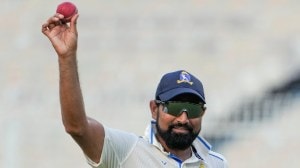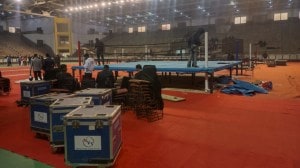How 145;toothless146; NHRC knocked its own teeth out
Families of the accused in the Best Bakery case are nervous that the NHRC team is coming to town. They have little reason to. For, the NHRC ...

Families of the accused in the Best Bakery case are nervous that the NHRC team is coming to town. They have little reason to. For, the NHRC is trying to lock the stable after the horse has bolted.
When all the accused got away in the Best Bakery case, NHRC chief Justice A S Anand called it a 8216;8216;miscarriage of justice.8217;8217; What he didn8217;t mention was the fact that while the case was on, the NHRC could have intervened8212;and it didn8217;t.
Hardly surprising since throughout its 10-year existence, the NHRC is yet to intervene in a single case anywhere in the court. This despite an express provision, Section 12b of the Protection of Human Rights Act, empowering the NHRC to 8216;8216;intervene in any proceedings involving any allegation of violation of human rights pending before a court with the approval of such court.8217;8217;
Had the NHRC thought of invoking this statutory function in the Best Bakery case, the Vadodara court would have had to admit it as an intervener and that could well have changed the course of the trial.
8216;8216;This should have come naturally to the NHRC,8217;8217; says human rights advocate H S Phoolka. 8216;8216;In any mass killing, it8217;s the commission8217;s job to step in and ensure that victims get justice especially when the system is stacked against them.8217;8217;
Instead, what the commission has done so far is to make strident noises that have gone largely unheard. Take March 2002 when then chairman Justice J S Verma led a team to Gujarat. Not one of his key recommendations was taken seriously8212;evident in the court8217;s strictures on the police in the Best Bakery case. It was the riot-tainted police who handled the matter despite the NHRC8217;s repeated suggestion that the CBI be brought in.
And despite the fact that the NHRC recorded widespread allegations that 8216;8216;FIRs had been poorly or wrongly recorded and that investigations had been influenced by extraneous considerations.8217;8217;
In less than a fortnight, the Modi Government rejected this suggestion by arguing that a probe by its police 8216;8216;cannot be put into disrepute8230;merely on the basis of hostile propaganda.8217;8217;
Two months later, the NHRC again raised the issue8212;only to be rejected again.
- 01
- 02
- 03
- 04
- 05






























